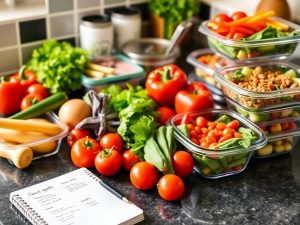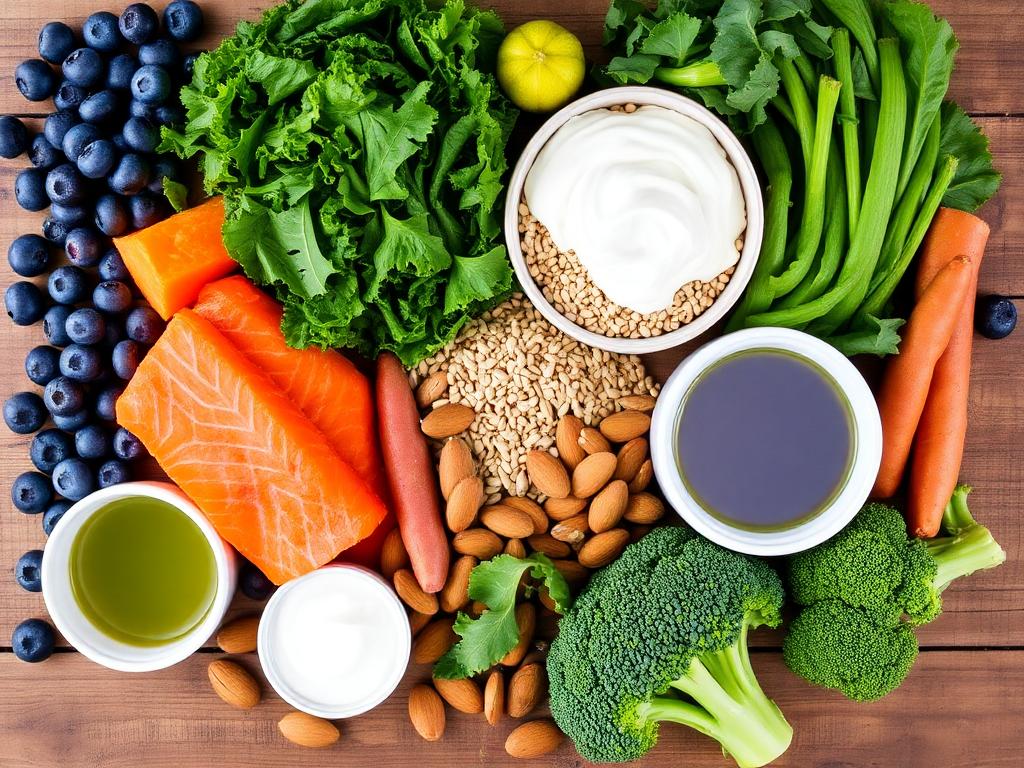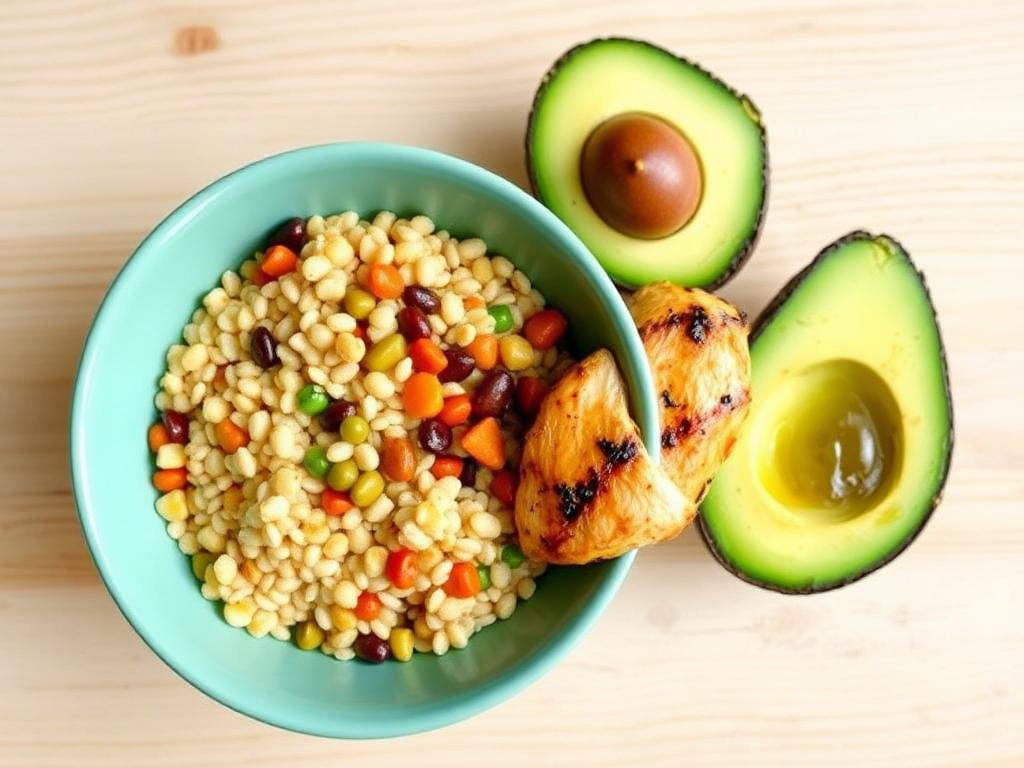Meal Planning: Tips for Success

Meal planning is one of the most effective ways to save time, eat healthier, and reduce food waste. Whether you’re trying to eat cleaner, save money, or simply want to streamline your week, meal planning is the key to success. It allows you to take control of your nutrition, avoid last-minute unhealthy food choices, and ensure that you’re always prepared with balanced meals.
In this article, we will discuss the benefits of meal planning, tips for getting started, and how to stay on track throughout the week. Whether you’re a beginner or a seasoned meal planner, these strategies will help you plan your meals efficiently and successfully.
Why Meal Planning Matters
Before we dive into the tips, let’s first explore why meal planning is so beneficial.
- Saves Time: Meal planning helps you avoid daily stress about what to cook. When you plan ahead, you only need to shop for the necessary ingredients and prepare meals that fit into your schedule.
- Saves Money: When you plan your meals in advance, you can buy in bulk and reduce impulse purchases. It also helps prevent wasting food that you might forget to use.
- Promotes Healthier Eating: Meal planning enables you to focus on nutritious, well-balanced meals. You can control your ingredients, portion sizes, and avoid the temptation of takeout or unhealthy snacks.
- Reduces Food Waste: By planning meals based on the ingredients you already have, you can minimize food waste. You’re also more likely to use up leftovers in creative ways, which helps you reduce waste even further.
Tips for Successful Meal Planning
Meal planning doesn’t have to be difficult. By following these simple tips, you can create a practical and sustainable meal plan that fits your lifestyle and goals.
1. Set Your Goals
Before you start planning meals, it’s essential to set clear goals. What do you want to achieve with meal planning? Are you trying to eat healthier, lose weight, save money, or reduce food waste? Knowing your goals will guide your meal planning decisions and help you stay focused.
- Healthy Eating: Prioritize whole foods, such as vegetables, fruits, lean proteins, and whole grains.
- Weight Loss: Focus on portion control, lower-calorie meals, and balanced macronutrients.
- Budget-Friendly: Plan meals using inexpensive ingredients like beans, lentils, rice, and frozen vegetables.
- Reduce Food Waste: Plan meals using leftover ingredients or those nearing their expiration date.
2. Plan for the Week
When you sit down to plan your meals for the week, start by reviewing your schedule. Take into account busy days when you may need something quick or meals you can prepare in advance.
How to Plan:
- Choose Recipes: Pick a few simple recipes for breakfast, lunch, dinner, and snacks. Aim for a variety of dishes, including one-pot meals, salads, and batch-cooked dishes.
- Make Use of Leftovers: Consider preparing meals that can be eaten multiple times or reworked into different meals. For example, roast chicken one night and use leftovers for salads or wraps.
- Include Snacks: Don’t forget to plan for snacks! Healthy snacks such as fresh fruit, nuts, and hummus with veggies can keep you satisfied between meals.
3. Create a Shopping List
Once you’ve chosen your meals, the next step is to create a shopping list. Organize the list by categories, such as produce, protein, dairy, and pantry staples. This will make your trip to the grocery store more efficient and help you stick to your budget.
Shopping List Tips:
- Stick to the List: Avoid impulse purchases by sticking to the items on your shopping list.
- Buy in Bulk: For pantry staples like rice, beans, and pasta, consider buying in bulk to save money in the long run.
- Check Your Pantry: Before heading to the store, take inventory of the items you already have to prevent buying duplicates.
4. Prep in Advance
Meal prepping is an essential component of meal planning. By preparing some components of your meals in advance, you’ll save time during the week and make it easier to stick to your meal plan.
Meal Prep Tips:
- Batch Cooking: Cook large quantities of rice, quinoa, or pasta and store them in the fridge for easy meal assembly during the week.
- Pre-chop Vegetables: Wash, chop, and store vegetables like bell peppers, carrots, and cucumbers in airtight containers to make meal preparation quicker.
- Prepare Proteins: Cook proteins like chicken, fish, or beans in advance. You can also marinate meats to add flavor and tenderness.
- Make Sauces and Dressings: Homemade sauces or salad dressings can be made in bulk and stored for several days, adding variety and flavor to your meals.
5. Stick to a Routine
Staying consistent with your meal planning routine is key to its success. If you only plan for a few days or skip planning for busy weeks, it can quickly derail your efforts.
Tips for Staying on Track:
- Set a Weekly Planning Day: Choose a day to plan your meals for the week. Sundays are often a great day to sit down and plan before the week starts.
- Meal Prep Day: Pick a day to batch cook and prep your meals for the week. Many people find Sunday afternoons to be ideal for this.
- Be Flexible: Life happens, and sometimes your meal plan might need to be adjusted. Keep some backup meals on hand, like frozen meals or easy-to-assemble dishes, for busy days when you don’t feel like cooking.
6. Try New Recipes
Meal planning doesn’t have to be boring. Trying new recipes is a fun way to keep things exciting and prevent meal fatigue. Experiment with seasonal ingredients, global cuisines, or cooking techniques to keep your meals varied and interesting.
- Explore new cuisines: Try incorporating dishes from different cultures such as Mediterranean, Asian, or Mexican into your meal plan.
- Seasonal Ingredients: Use fresh, seasonal produce to enhance flavor and get the most nutritional benefits from your meals.
How to Stay Motivated
Meal planning can be challenging at first, especially when you’re not used to it. But with some practice, it will become second nature. Here are some tips to stay motivated:
- Celebrate Small Wins: Acknowledge your efforts each week, whether it’s sticking to your meal plan or using up leftovers.
- Make It Fun: Meal planning doesn’t have to feel like a chore. Use apps or printable planners to organize your meals, and keep a recipe journal with your favorite dishes.
- Track Your Progress: Keep track of how meal planning is helping you achieve your goals, whether it’s saving time, eating healthier, or sticking to a budget.
Conclusion
Meal planning is a powerful tool that can help you take control of your diet, save time, and stay organized. By setting clear goals, planning ahead, and prepping in advance, you’ll be able to enjoy healthier meals and reduce stress during the week. Start small, stay consistent, and soon you’ll be reaping the benefits of a well-planned and stress-free eating routine.


